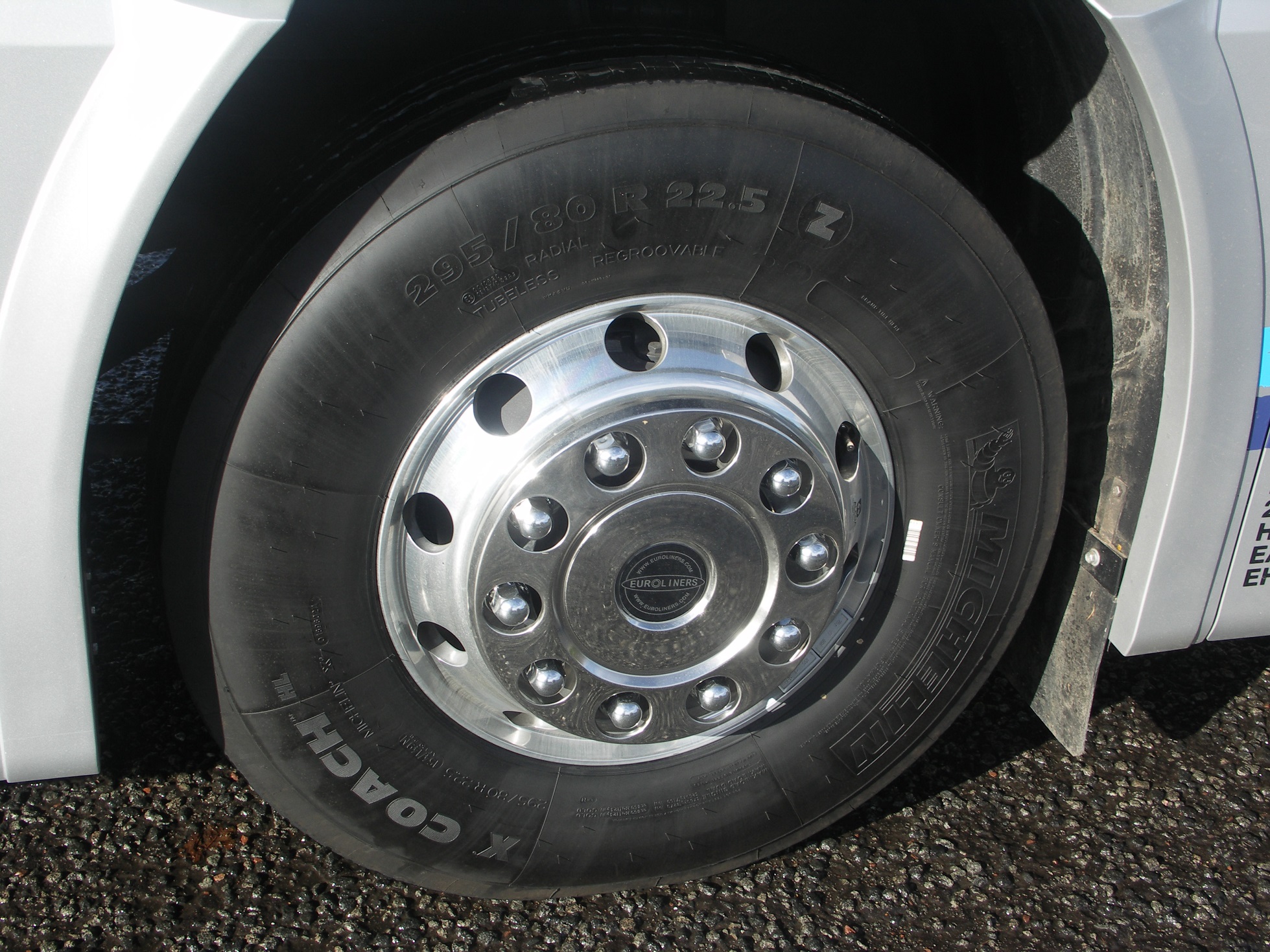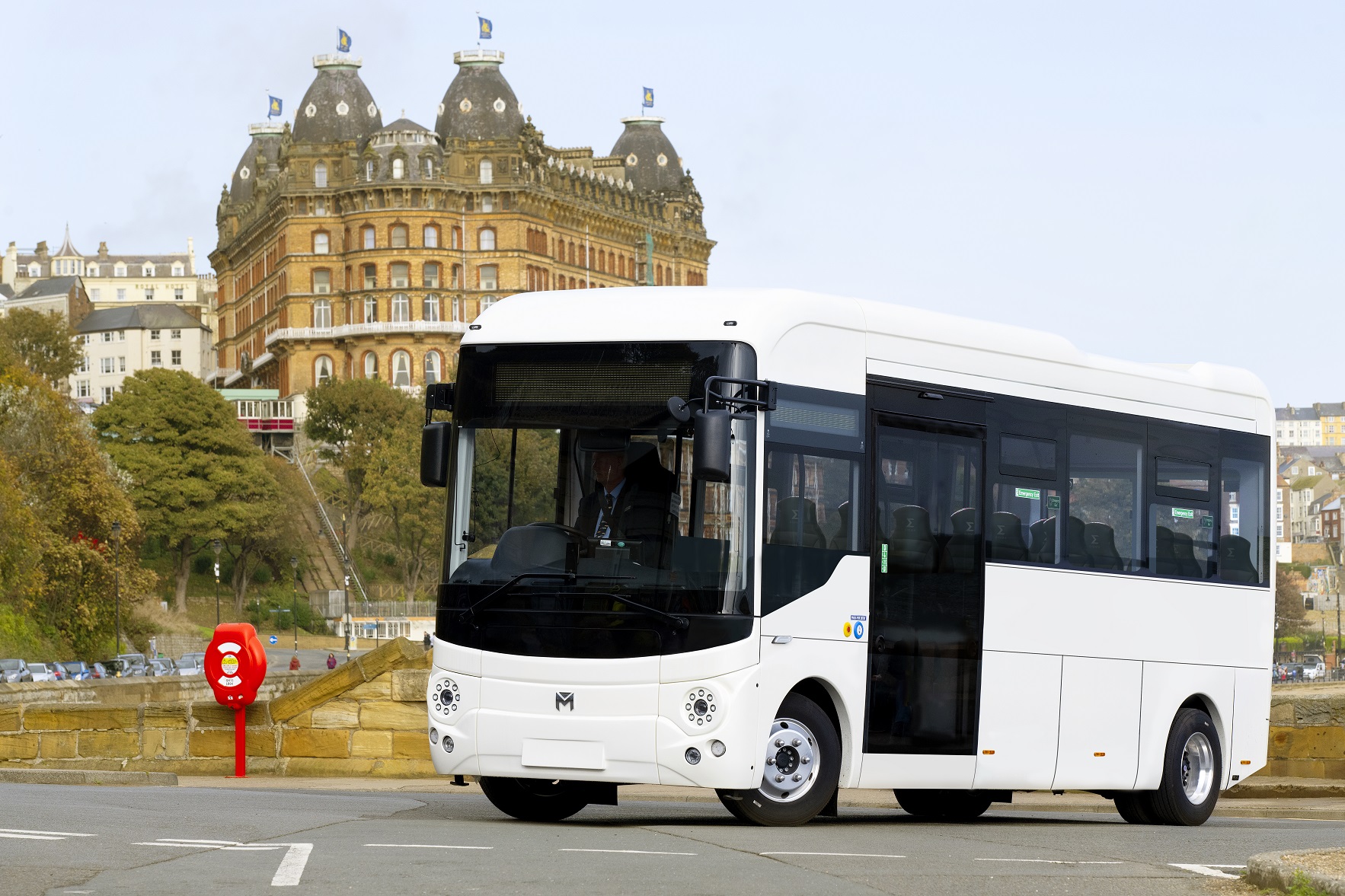Vehicle OEMs have criticised proposals from the European Commission (EC) about the introduction of Euro 7 emissions regulations. The EC anticipates that they will capture new heavy-duty vehicles from 1 July 2027.
Under the plan, the current separate approach to cars and vans via Euro 6 and coaches, buses and HGVs as Euro VI will be consolidated under a single set of rules as Euro 7. The OEMs claim that the work required to achieve Euro 7 will come with a significant cost and divert resources away from the development of zero-emission technologies.
Brake and tyre emissions form part of Euro 7 proposals
For the first time, emissions from brakes and tyres will be added to create a whole vehicle approach. Those limits will also apply to vehicles that are zero-emission at the tailpipe as part of “a greater focus on whole vehicle testing instead of engine testing.” Trade body Logistics UK has questioned whether the necessary changes to compounds will reduce usable tyre life and increase costs.
“The proposals also foresee modifications in the design of the limits to focus attention on the reduction of cold-start emissions, which are especially important for urban driving,” the Commission says. Particle emissions from heavy-duty vehicle brakes and microplastics from tyres are expected to be limited “before the application date of the Regulation,” the EC continues.
Existing emission limits at Euro VI are tightened under the proposals, with the EC stating that there is “untapped potential” to further improve those standards.
Under the Euro 7 plans, it is anticipated that total NOx emissions from heavy vehicles in the 28 EU member states will reduce by 56% in 2035 compared to Euro VI, while particulate matter will drop by 39%. CO2 emissions are dealt with under separate regulations.
Development resources better focused on zero-emission, say OEMs
The European Automobile Manufacturers’ Association (ACEA), which includes DAF Trucks, Daimler Truck, Iveco and Volvo Group among its members, claims that the environmental benefits of the Euro 7 proposals are “very limited” and that they will heavily increase vehicle costs. Logistics UK agrees and has raised similar concerns around a potential short life of Euro 7.
For heavy-duty applications, compliance with Euro 7 will lead to OEMs having to “move substantial engineering and financial resources from battery- and fuel cell-electric vehicles back to the internal combustion engine,” says Volvo Group CEO and ACEA Commercial Vehicle Board Chair Martin Lundstedt.

“This will severely impact our transition to zero-emission vehicles. It is not good for the climate, not good for people’s health, and not good for the industry,” he adds.
ACEA believes that July 2027 implementation of Euro 7 for heavy duty vehicles is “unrealistic” and that the contribution of particulates from non-exhaust sources should be the focus of both Euro 7 and tyre type approval regulations.
Some limits ‘at the edge of technical feasibility’
In responding to the Euro 7 proposals, MAN Truck and Bus CEO Alexander Vlaskamp aired similar criticism. He says that the plan is “far too ambitious and kicks in at the wrong moment.”
Like Mr Lundstedt, Mr Vlaskamp believes that development for Euro 7 will divert resources from zero-emission. Euro 7, he adds, “requires massive investment of several hundred million Euros into a diminishing technology… which will even exceed the cost of developing a very comprehensive Euro VI standard.” Mr Vlaskamp believes that some of the limits in the Euro 7 proposals are “even at the edge of technological feasibility.”
Download the Euro 7 proposals from the EC website via *.zip file here.



























